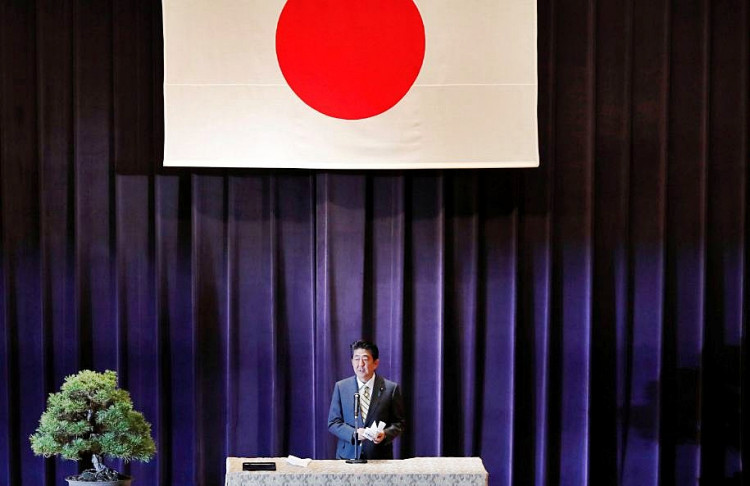The government of Prime Minister Shinzo Abe is almost finished laying the political foundations for transforming the Japan Self-Defense Force (JSDF), the country's powerful armed forces, into an offensive weapon able to lawfully carry out military operations overseas.
An op-ed in the state-owned newspaper China Daily noted Abe and his ruling Liberal Democratic Party (LDP) are bent on changing Japan's post-war defense posture, which is unabashedly defensive and pacifist, into one more willing to use military force outside its shores under the guise of the doctrine of collective self-defense.
But to bring this about, Abe has to convince the Japanese Diet to amend Article 9 of the Constitution that outlaws war as a means to settle international disputes involving Japan. The op-ed by Yao Jianing, China Daily Tokyo bureau chief, says Abe has to amend Article 9 of the Japanese Constitution to allow the JSDF to quicken the pace of the military build-up necessary for any foreign military action to be viable.
Yao says Japan sees China and North Korea as the two main military threats to its stability. Russia might also be considered a threat but not in the same breath as China and North Korea.
Japan's recent defense white papers, which were approved last week, reassert this view and have again concluded that Japan's defense capabilities are weak and must be strengthened. The white papers propose that sufficient defense capabilities must be developed "qualitatively" and "quantitatively" by Japan.
Abe has sought to accomplish this by obtaining larger and larger defense budgets since he became prime minister in 2012. He now wants to accelerate Japan's military build-up by making two revisions to the National Defense Program Guidelines (NDPG). NDPG provides long-term direction for Japan's defense posture based on security assessments.
The first revision involved changing the Japan-US Guidelines for Cooperative Defense and enacting legislation that will broaden the scope of Japan's security options. Both these revisions will make it legal for Japan to exercise the doctrine of collective self-defense. Abe then intends to amend Article 9.
Yao said amendments to the NDPG and the Mid-Term Defense Plan will begin this year. The new concept of war being developed by the JSDF is the "cross-domain defense concept." This way of war calls for a massive defense build-up while improving joint interoperability with the United States and strengthening the Japan-U.S. alliance.
It also involves strengthening Japan's presence in space and its cyber warfare capabilities. The Ministry of Defense intends to establish a new command center for cyberspace and outer space, both of which are now seen as the "fourth and fifth battlefields" after land, sea and air. NDPG will pay particularly close attention to Japan's capabilities in space and cyber warfare, said Yao.
The immense sums of money for all these military capabilities will be to increase defense spending to two percent of GDP from the current one percent.






